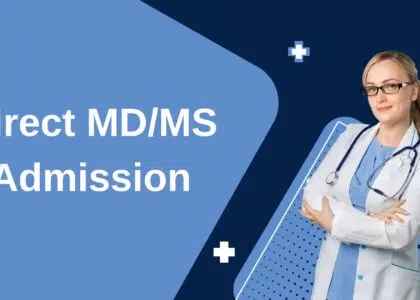In today’s digital-first world, having a website is not enough. Businesses, bloggers, and professionals need their content to be discovered by the right audience. That’s where SEO (Search Engine Optimization) comes in. SEO is the process of improving your website’s visibility in search engines like Google, Bing, and Yahoo. When done correctly, SEO helps you attract high-quality traffic, increase brand awareness, and generate leads without paying for ads.
What is SEO?
SEO stands for Search Engine Optimization. It is the practice of optimizing web pages and content to rank higher in search engine results pages (SERPs). The goal is to make your website more attractive to both search engines and users. Unlike paid advertising, SEO focuses on organic (non-paid) traffic.
Search engines use algorithms to crawl, index, and rank websites. SEO ensures your site meets these algorithm requirements, making it easier for your pages to appear when people search for relevant keywords.
Why is SEO Important?
-
Drives Organic Traffic – Most users click on the first few search results. A well-optimized site ensures you get this valuable traffic.
-
Cost-Effective – Unlike paid ads, SEO provides long-term results with relatively lower costs.
-
Builds Trust & Credibility – High-ranking sites are often seen as more trustworthy.
-
Better User Experience – SEO involves optimizing site speed, mobile-friendliness, and navigation, all of which improve the user experience.
-
Competitive Advantage – Businesses that invest in SEO gain an edge over competitors who rely only on traditional marketing.
Types of SEO
SEO is divided into several categories:
1. On-Page SEO
This refers to optimization done within your website.
-
Keyword research and placement
-
Meta titles and descriptions
-
Internal linking
-
Image optimization (alt text, file size)
-
Content quality and readability
2. Off-Page SEO
This focuses on activities done outside your website to boost authority.
-
Backlink building
-
Social media engagement
-
Guest posting
-
Influencer outreach
3. Technical SEO
This ensures search engines can crawl and index your site properly.
-
Site speed optimization
-
Mobile responsiveness
-
XML sitemaps
-
SSL certificates (HTTPS)
-
Fixing broken links
4. Local SEO
Local SEO helps businesses appear in location-based searches.
-
Google Business Profile optimization
-
Local keywords (“SEO services in Noida”)
-
Customer reviews
-
Local citations
How Does SEO Work?
SEO works by aligning your website with search engine ranking factors. Google, for example, considers 200+ factors before ranking a page. Key elements include:
-
Relevance of content to the query
-
Keyword usage
-
Website speed and mobile-friendliness
-
Domain authority and backlinks
-
User engagement (time on page, bounce rate)
When your site meets these conditions, it is more likely to rank higher on search results.
SEO Techniques
There are three main approaches:
-
White Hat SEO – Ethical practices that follow search engine guidelines (e.g., quality content, natural link-building).
-
Black Hat SEO – Unethical shortcuts like keyword stuffing, cloaking, and buying backlinks. Risky and not recommended.
-
Gray Hat SEO – A mix of both, involving strategies that are not strictly ethical but still effective if done carefully.
Popular SEO Tools
-
Google Analytics – For tracking website traffic and performance.
-
Ahrefs – For backlink analysis and keyword research.
-
SEMrush – For competitor analysis and SEO audits.
-
Yoast SEO – A WordPress plugin for on-page optimization.
-
Google Search Console – For indexing and monitoring website health.
Future of SEO
With the rise of AI, voice search, and mobile-first indexing, SEO is constantly evolving. Search engines are focusing more on user intent, E-E-A-T (Experience, Expertise, Authoritativeness, Trustworthiness), and content quality. Video SEO, structured data, and semantic search are becoming increasingly important.
FAQs About SEO
Q1. How long does SEO take to show results?
SEO is a long-term process. Most websites see significant improvements within 3–6 months.
Q2. Is SEO better than paid advertising?
Both have their roles. Paid ads provide instant traffic, while SEO ensures sustainable, long-term visibility.
Q3. Do I need technical skills for SEO?
Basic SEO can be done without coding, but technical SEO may require some technical knowledge.
Q4. Can small businesses benefit from SEO?
Absolutely. Local SEO, in particular, helps small businesses compete with larger brands.
Q5. What is the difference between SEO and SEM?
SEO focuses on organic rankings, while SEM (Search Engine Marketing) includes paid advertising like Google Ads.
Conclusion
SEO is not just a marketing strategy—it’s an essential part of building a strong online presence. Whether you’re a blogger, small business owner, or large enterprise, investing in SEO helps drive organic traffic, increase brand trust, and generate long-term results. By focusing on quality content, proper optimization, and user experience, you can achieve higher rankings and stay ahead in the digital landscape.







